
Time for a change of scenery? Take a look at what you could do at Khiri Travel!. Creativity and a genuine passion for responsible travel are at the core of all we do at Khiri Travel. We’re real specialists in each of our destinations. Living up to our reputation, we share our passion for discovery. We love what we do and that shows in the team spirit. Dream destinations are our place of work and we take it as our responsibility to ensure they remain fabulous to visit for generations to come. We truly believe tourism can be a force for good.. We have a lot to do and are always on the look out for hard-working, dynamic, out-of-the-box thinkers with a good sense of humor and excellent cross-cultural skills. Your personality means as much as how good you are at what you do. Even if you cannot find the dream job that are looking for, or fear you miss the qualifications or experience, we love to hear what you can contribute to make Khiri Travel even better than it already is.
-
13 Jul 23
NEWS
Khiri Campus launches in AsiaKhiri has unveiled its new ground handler and educational programme service for Asia. Khiri Campus ...Read moreKhiri Campus launches in Asia - News & announcementsKhiri has unveiled its new ground handler and educational programme service for Asia. Khiri Campus takes over from GROUND Asia, which effectively closed due to the pandemic. The rebranded service took 12 students from Australia on a 15-day culture-focused trip to Sri Lanka last month. They also led a visit of 19 Australian college students on a 15-day trip to Java, Indonesia, focused on biotech, pharmacy and public healthcare. "The new entity of Khiri Campus has the competitive advantage of retaining and building upon the knowledge, itineraries, and reputation of GROUND Asia," said Khiri Group Director, Simon Drayton. Over the last five years, GROUND Asia and new successor, Khiri Campus have implemented 237 projects for 4,036 students in six Asian countries. "The new Khiri Campus starts with fully enhanced and updated itineraries and field learning options," Drayton said. "Khiri Campus journeys seek to strengthen leadership skills and learn first-hand about different cultural and educational experiences." For universities and colleges, Khiri Campus now offers business, health care, social science and natural science learning trips. For schools there are programmes for service learning, outdoor adventures, cultural and environmental work. It offers programmes in Thailand, Vietnam, Cambodia, Sri Lanka, Indonesia and Laos. "Early indications are that educational travel is picking up very strongly again," Drayton added. -
08 Jul 23
Expert Hub
Three generation travel in IndonesiaBefore taking the helm as CEO of Khiri Travel, Herman Hoven was general manager of ...Read moreThree generation travel in Indonesia - News & announcementsBefore taking the helm as CEO of Khiri Travel, Herman Hoven was general manager of Khiri Travel Indonesia. In this Expert Hub article, Herman offers his expert insight on the rise of multi-generation family travel in Indonesia. We ask how suitable Indonesia is for three generations of one family traveling together, and how do visiting families experience the country? How do you define multi-generational (3G) travel? Typically an adult couple over 60, their married son or daughter, and their young kids, who are usually under 10 years old. In short: children, parents and grandparents, so fun and challenging. When did you notice this 3G trend starting to occur in Indonesia? Parts of Indonesia has always been a popular destination for families with a relatively well developed domestic infrastructure. Many Dutch-Indonesian families migrated back to the Netherlands in the 1950's and 60's. These families now wish to show their children and grandchildren where they grew up. More recently, it's a growing phenomenon among Americans, western Europeans and Australian families. A family treasure hunt in Indonesia How do different nationalities approach a 3G holiday in Indonesia? Europeans tend to stay a little longer and stretch their budgets to over two or even three weeks of holiday. American families tend to stay a maximum of 10-12 days but in more upscale accommodation. Itineraries for European families tend to be more on the adventurous side, with plenty of hiking and cycling. Americans often enjoy some more culturally-immersive experiences.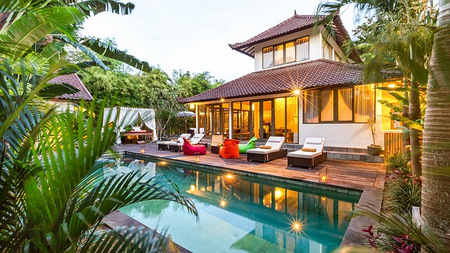 Standalone villas are a popular choice for 3G families
Why do families perceive Indonesia to be suitable for this type of trip?
Families tell me they are attracted by many things. The hotel infrastructure in Bali is varied and flexible. There are plenty of connecting rooms, standalone villas and apartments.
3G holidays require activities that create interaction between all generations. In Indonesia families like sharing experiences such as a treasure hunt through rice paddies, cooking classes at a local family house, local village visits, and family blessing ceremonies by Balinese royals and priests.
Visiting families also like that there are options for different generations to experience time on their own. Usually that's private time for the parents, for example a spa or romantic dinner, plus a practical activity for the grandparents and grandchildren.
How do Indonesians perceive their multi-generational visitors?
Indonesians are culturally very respectful of the family as a unit. As is common in Asia, they show great respect to the elderly and adore children. Families love the warm welcome they receive.
Standalone villas are a popular choice for 3G families
Why do families perceive Indonesia to be suitable for this type of trip?
Families tell me they are attracted by many things. The hotel infrastructure in Bali is varied and flexible. There are plenty of connecting rooms, standalone villas and apartments.
3G holidays require activities that create interaction between all generations. In Indonesia families like sharing experiences such as a treasure hunt through rice paddies, cooking classes at a local family house, local village visits, and family blessing ceremonies by Balinese royals and priests.
Visiting families also like that there are options for different generations to experience time on their own. Usually that's private time for the parents, for example a spa or romantic dinner, plus a practical activity for the grandparents and grandchildren.
How do Indonesians perceive their multi-generational visitors?
Indonesians are culturally very respectful of the family as a unit. As is common in Asia, they show great respect to the elderly and adore children. Families love the warm welcome they receive.
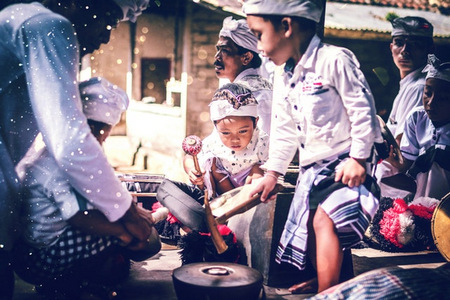 Indonesians are very respecful of family
What do families think is essential to the success of their 3G trips in Indonesia?
The key to success is the choice of accommodation. Families want an option to be together in one big living space, but also a chance to retreat into private rooms for downtime. Indonesia's private villas are best suited to this.
They also like accommodations that can provide services such as cooking, babysitting and arranging children's activities. Another hit is locally owned accommodations, where staff can help immerse the family into local communities and culture.
Families want plenty of time to relax and chill together. They want to visit destinations which offer different attractions for different generations in the same area. One example is the botanical gardens and Bali treetop adventure.
What are the favourite experiences of 3G families visiting Indonesia?
Visiting the village of Bulian with a local guide and meeting different generations is a perennial favourite. Traditional Balinese culture is very much alive here. Visiting kids play with local kids and guests are welcome in the kitchen.
Also popular among our 3G clients is a treasure hunt in a village called Sidemen. It's a good example of families enjoying an activity they can all share together.
Indonesians are very respecful of family
What do families think is essential to the success of their 3G trips in Indonesia?
The key to success is the choice of accommodation. Families want an option to be together in one big living space, but also a chance to retreat into private rooms for downtime. Indonesia's private villas are best suited to this.
They also like accommodations that can provide services such as cooking, babysitting and arranging children's activities. Another hit is locally owned accommodations, where staff can help immerse the family into local communities and culture.
Families want plenty of time to relax and chill together. They want to visit destinations which offer different attractions for different generations in the same area. One example is the botanical gardens and Bali treetop adventure.
What are the favourite experiences of 3G families visiting Indonesia?
Visiting the village of Bulian with a local guide and meeting different generations is a perennial favourite. Traditional Balinese culture is very much alive here. Visiting kids play with local kids and guests are welcome in the kitchen.
Also popular among our 3G clients is a treasure hunt in a village called Sidemen. It's a good example of families enjoying an activity they can all share together.
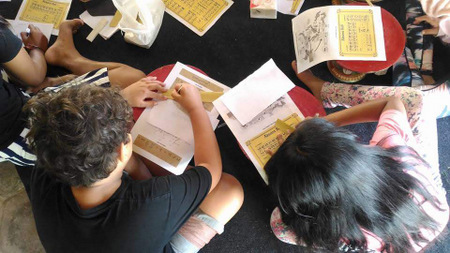 Children doing Lontar writing
How do 3G families experience Indonesia beyond Bali?
Java, Bali, Lombok and West Flores have better facilities for all the generations. We rarely see 3G families traveling beyond these more organised parts of Indonesia.
Families are surprised how an adventure visiting Komodo dragons in Flores is easy to organise. The same counts for visiting volcanoes in Java by jeep, as well stays on the beautiful beaches of north Lombok and the Gili islands.
What are common mistake made by DMCs when organising 3G itineraries?
Families are happy when the needs of every generation can be satisfied. When trips are less successful it's usually due to a lack of local knowledge.
Don't have them hiking up temple steps in the midday heat. Keep itineraries flexible, so that the grandparents or young kids can relax in a sea view cafe, or similar, while fitter members have the option of exploring by themselves.
Most of Khiri's local staff have families of their own and live together with multiple generations. So they have insight into both the country and visitor.
As general manager of Khiri Travel Indonesia, Herman Hoven designed and implemented multiple new DMC travel experiences, and opened offices in Bali, Java and Sulawesi. Herman Hoven is now CEO of Khiri Travel.
Children doing Lontar writing
How do 3G families experience Indonesia beyond Bali?
Java, Bali, Lombok and West Flores have better facilities for all the generations. We rarely see 3G families traveling beyond these more organised parts of Indonesia.
Families are surprised how an adventure visiting Komodo dragons in Flores is easy to organise. The same counts for visiting volcanoes in Java by jeep, as well stays on the beautiful beaches of north Lombok and the Gili islands.
What are common mistake made by DMCs when organising 3G itineraries?
Families are happy when the needs of every generation can be satisfied. When trips are less successful it's usually due to a lack of local knowledge.
Don't have them hiking up temple steps in the midday heat. Keep itineraries flexible, so that the grandparents or young kids can relax in a sea view cafe, or similar, while fitter members have the option of exploring by themselves.
Most of Khiri's local staff have families of their own and live together with multiple generations. So they have insight into both the country and visitor.
As general manager of Khiri Travel Indonesia, Herman Hoven designed and implemented multiple new DMC travel experiences, and opened offices in Bali, Java and Sulawesi. Herman Hoven is now CEO of Khiri Travel.
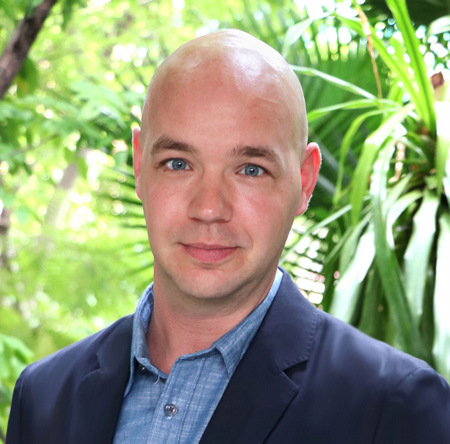 Herman Hoven
Herman Hoven
-
08 Jul 23
Expert Hub
Hungry in Hanoi: The Best of Vietnam’s Food CapitalHave You Eaten Yet? People travel all over the world for a number ...Read moreHungry in Hanoi: The Best of Vietnam’s Food Capital - News & announcementsHave You Eaten Yet? People travel all over the world for a number of reasons – nature, climate, activities, culture, and many more. At the top of most lists is the local food, which is why Vietnam ranks right up there with the best – especially the capital city of Hanoi, which is one of the finest culinary destinations in Asia. And where in many countries the standard greeting is “How are you?” or “What’s up?”, in Vietnam it’s “Ăn cơm chưa?” – “Have you eaten yet?” Such is the importance of food to the Vietnamese! Wandering through the 36 streets of the Old Quarter, the Hanoi street food options are endless. With pots boiling wherever you look, you are never too far from some of the tastiest meals in town. The enticing aromas draw local Vietnamese people to their favourite places throughout the day and many travellers take their seats alongside them to enjoy the traditional meals that have kept Hanoians filled and fuelled for years.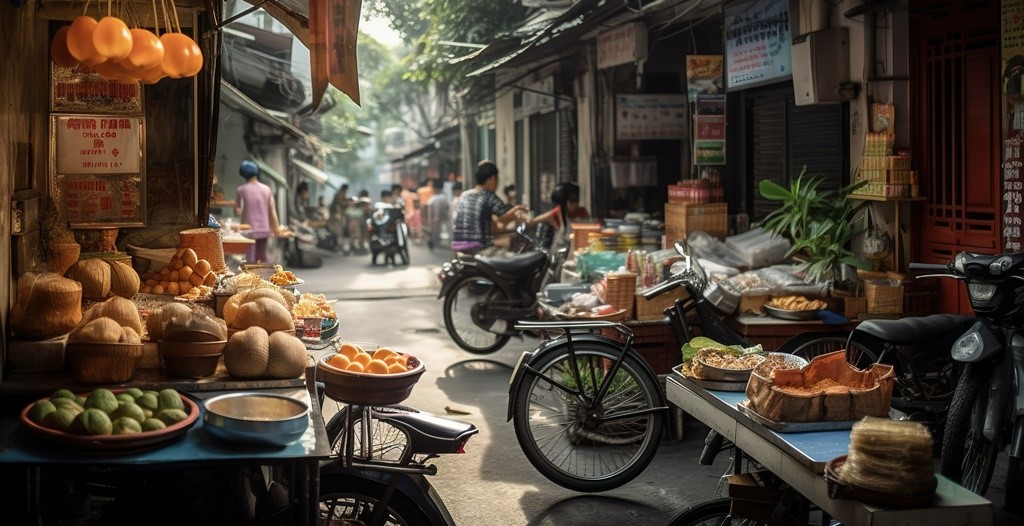
A typical street scene in Hanoi's Old Quarter
Street Treats Phở is a soup that was invented at the start of the 20th Century. The broth is simmered for hours using pork or beef bones. When ready, it is then served with rice noodles, onion, and herbs, with some chefs adding cardamon or star anise for some extra zing. There are many varieties of this traditional soup, with phở ga (chicken) and phở bo (beef) being the favourites. Over the years, seafood and vegetarian phở have also risen in popularity. I had only been living in Vietnam for a few months when I was persuaded by a local friend to have a bowl for breakfast. For a Westerner, this seemed rather strange. But once I started eating the rich soup, laden with pieces of tender chicken pieces, I was hooked. Most mornings, I now head out onto the street and sit on a low stool to enjoy my breakfast soup. A wonderful and healthy way to start the day! Banh Cuon literally translates to “rolled cake” and is another local breakfast favourite. Chefs take sheets of rice flour crepes and fill them with ground pork and mushrooms. Once rolled up, they are covered with fried shallots, spring onions, and beansprouts. Absolutely delicious! Bún chả was created in Hanoi and can be seen on menus throughout the city. This dish consists of grilled pork and rice noodles and is served with a variety of ingredients ranging from herbs, cucumber, carrot, beansprouts, mint, chillies, lettuce, and fish sauce. It is guaranteed to fill you up before or after a long day of sightseeing.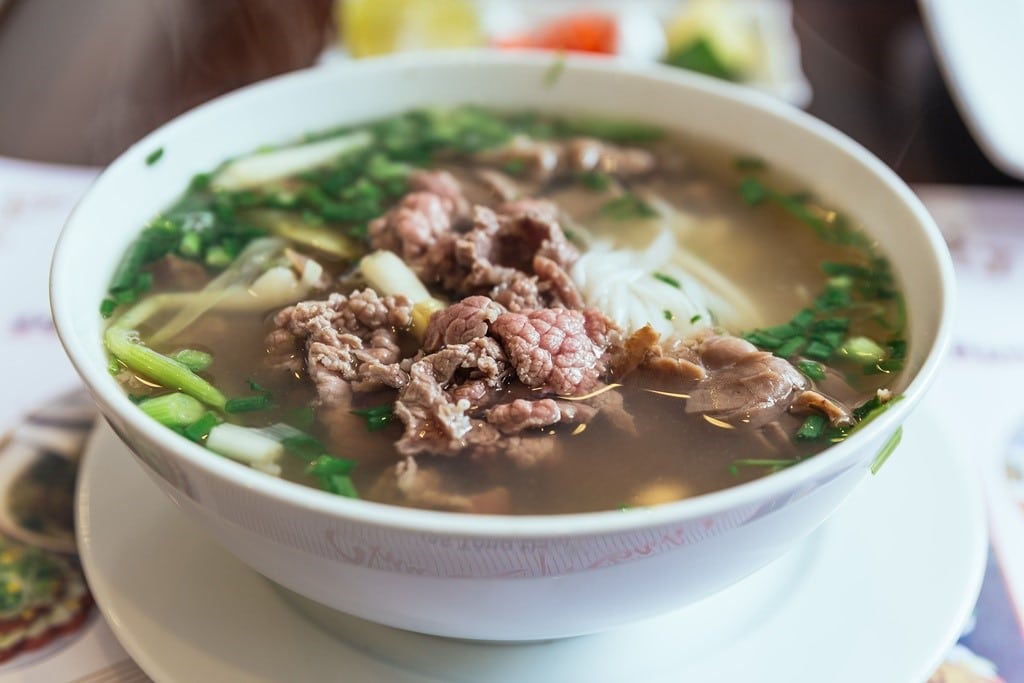
Pho

Bun Cha
One of my favourite quick meals is a crusty baguette called a bánh mì. While meandering through the streets of Hanoi, you may see silver metal food carts piled high with these French-inspired baguettes. A creamy sauce is smothered onto the base of each roll, followed by a rich pate then filled with slices of various types of meat. Pieces of fried egg, coriander, salad, and fish sauce form the rest of this incredibly tasty creation. It’s easy to spot the most popular bánh mì sellers, as you will notice locals on their motorbikes mounting the kerb to drive right up to the cart to get one. Other amazing street food to try is bun bo nam bo, translated as “noodles with beef from the South,” which is a warm noodle salad with stir-fried beef. Or why not try cha ca, which is grilled snakehead fish that’s marinated in turmeric and sugar for a sweet, sticky flavour? Once it’s sizzling, enjoy bite-sized slices of fish with peanuts, herbs and vermicelli. Cha Ca street is synonymous with this dish and Cha Ca La Vong is an institution in Hanoi. And what better way to wash down these incredible dishes than with a sweet tea or egg coffee. I’d never tried an egg coffee before I moved to Vietnam. In fact, I’d never tried any drink with egg as an ingredient before. But the rich taste of egg yolk, robusta coffee, sugar, and condensed milk was an instant hit for me. And the strong caffeine gave me so much energy for the rest of the day.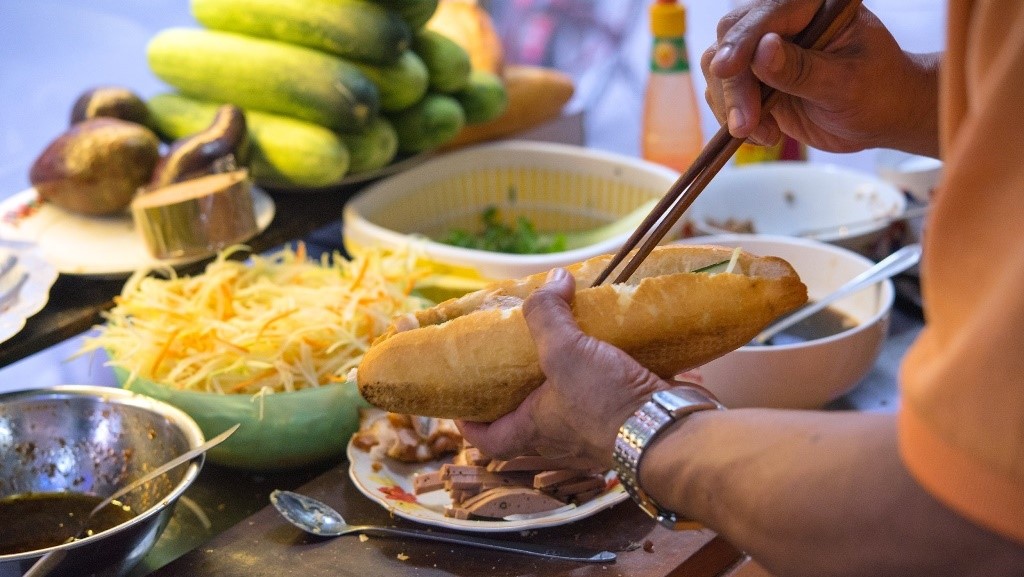
Banh mi stall

Weird but wonderful egg coffee
Restaurants & Markets While street food is to be experienced and savoured, Hanoi offers an immense choice of high-quality restaurants for one to enjoy a more formal lunch or dinner. One of the most popular choices is Cau Go, which is situated next to the impressive Hoan Kiem Lake. Its location on the top floor allows you to dine in style while looking out across the tranquil water. The friendly, informative staff are well-skilled at handling large orders with ease. The menu here is truly mouth-watering, with meat, fish, and vegetarian options expertly prepared by local chefs, and I’d recommend ordering several dishes for the entire table to share. If you are looking for both local and Western food, then Ly Club is a perfect choice. Just a short walk from the magnificent Opera House in the French Quarter, this renowned restaurant offers a wide range of choices, from spring rolls to soups, noodles dishes to grilled fish, and if you are looking for something a little bit special, there are six tasting menus to choose from. A trip to one of the local food markets in Hanoi is truly a highlight for many visitors. Chau Long, Dong Xuan and Hang Da markets bustle from early morning with vendors setting up their stalls long before the sun comes up, ready for the busy day ahead. Many shoppers arrive on their motorbikes, which are soon laden with fruit, vegetables, meat, herbs, fish, and noodles. The fish is so fresh here, with many still swimming in shallow buckets. There is hardly room to manoeuvre, yet the market never feels overwhelming. It’s a lot like the street traffic, and here the pedestrians weave in and out of the aisles with ease. There is so much to take in at the market and the hustle and bustle atmosphere is mesmerising. I always seek out the fresh fruit stalls and return home laden with mangosteen, rambutan, and passion fruit. Bring a camera as there are sure to be many photo opportunities at the food market.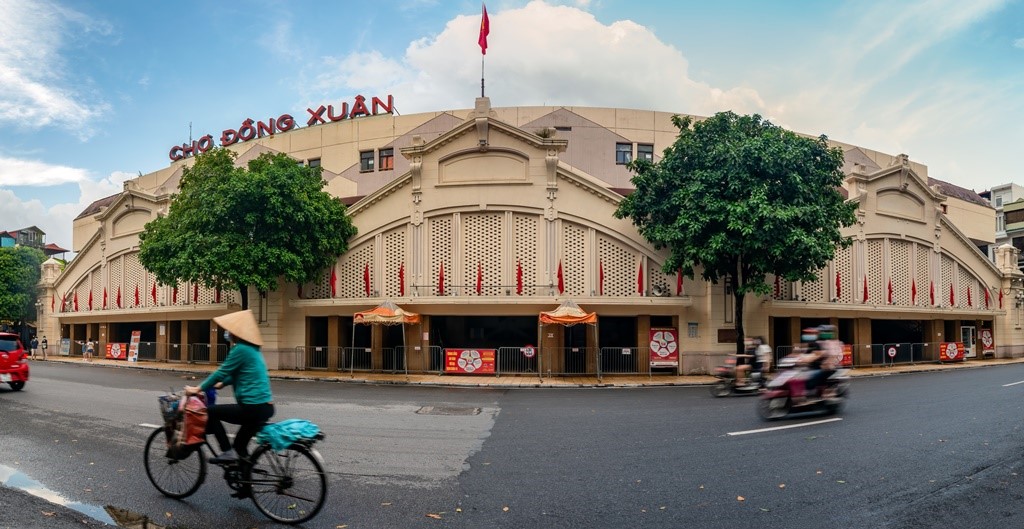
Dong Xuan market
Before anyone leaves this incredible culinary capital, I’d highly recommend trying a cooking class, so you can take some of these recipes and try them at home. A cooking class in Hanoi always includes a walk around a local market, where the chef expertly guides you around the many ingredients, some of which can only be found in Vietnam. While many classes are held in restaurants, those that take place in a local house are my favourite, as it gives you the chance to interact with a local Vietnamese family. They are truly wonderful hosts, welcoming you with tea and snacks before the chef helps you create your meal. You will learn how to prepare and cook several dishes which you will enjoy with the family. It’s a magical experience and it provides a wonderful moment of connection with the family. As you sit down to enjoy delicious local Vietnamese food with them, there will be much to speak about and a lot to learn from one another about each other’s lives, history, culture, and traditions. This really is a heart-warming, unforgettable experience. Aaron first arrived in Vietnam in 2004 as a tour leader landing in the bustling Hanoi and has since explored most corners of the country. Although tour leading took him to many parts of SE Asia, Vietnam, and in particular, Saigon, always felt like home. Aaron joined Khiri Travel earlier this year and is a fan of exploring the country by motorbike and recently completed a month-long ride into the central highlands and along the spectacular eastern coast of the country. In the past he has ridden from the Mekong Delta to Ha Giang in the far north.
Aaron first arrived in Vietnam in 2004 as a tour leader landing in the bustling Hanoi and has since explored most corners of the country. Although tour leading took him to many parts of SE Asia, Vietnam, and in particular, Saigon, always felt like home. Aaron joined Khiri Travel earlier this year and is a fan of exploring the country by motorbike and recently completed a month-long ride into the central highlands and along the spectacular eastern coast of the country. In the past he has ridden from the Mekong Delta to Ha Giang in the far north. -
08 Jul 23
Expert Hub
Not Just Curry: The Best of Sri Lankan FoodWhile Sri Lanka is well known for its diversity ranging from history, wildlife, nature, ...Read moreNot Just Curry: The Best of Sri Lankan Food - News & announcementsWhile Sri Lanka is well known for its diversity ranging from history, wildlife, nature, rainforests to beaches, one of the most underrated experiences on offer is the Sri Lankan cuisine which is second to none in Asia. While many travellers come to a premature conclusion that it’s just curries and pretty much the same as Indian food, a proper itinerary with us featuring our signature experiences will definitely change that perception and highlight the uniqueness of Sri Lankan food. Flavours of a Melting Pot: Colombo Through its Food Colombo is a perfect example of a melting pot of cultures and there’s no exception to its culinary delights either. Being influenced by the delicacies of different ethnicities such as Sinhalese, Tamils, Muslims and Sri Lankan Burghers, there’s no better place than Colombo to do a proper foodie tour! This experience covers pretty much all aspects from street food, local eateries to fancy fine dining style restaurants. Whether it’s a Vadai, Dosai or Idly at a Tamil restaurant, a Kottu Roti or a Samosa at a Muslim restaurant or a neatly presented portion of hoppers, everything will scream out Sri Lankan spices which will probably bring tears of happiness and spice.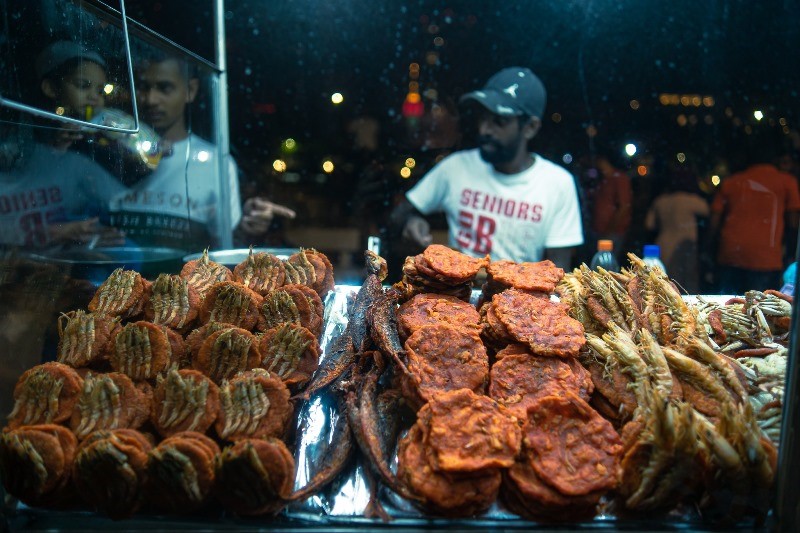
Typical Colombo street food
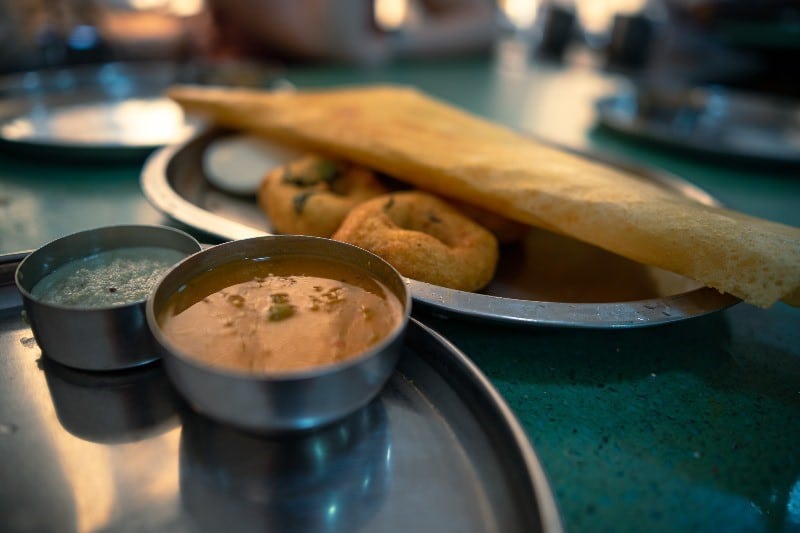
Tamil snacks
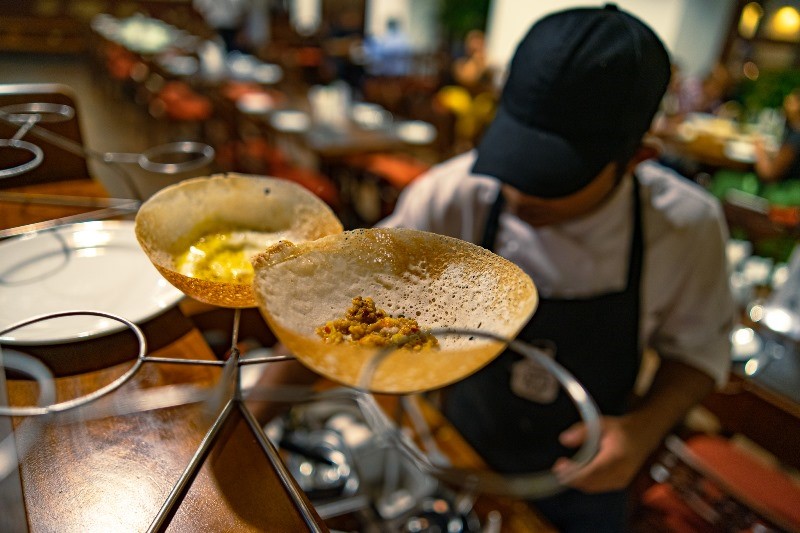
Cooking in Kandy
While Kandy is often considered only for cultural importance and usually featured in itineraries for just one night, we believe that it’s a destination that deserves a longer stay simply for its cuisine. We have a few experiences based around Kandyan flavours. Curries, Claypots & Kandyan Flavours takes place in a simple house where authenticity is the key. This is a real home where an extended family of three generations live together and with the ladies of the family you will join for a traditional cooking session on claypots followed by lunch. While the cooking session itself is informative, we believe what really makes this experience special is the genuine hospitality and the real homely setting. Our Cook like a Local experience takes place at a homestay bordering the Mahaveli River in a scenic location where the lady of the house will take you through an extensive culinary journey with an in-depth introduction to Sri Lankan spices and a perfect lesson of how they are used in day to day cooking. If you want to feel like a Masterchef of Sri Lankan curries, this is the experience for you! One of our lesser known experiences Memorable Moments with a Kandyan Family takes you on a visit to the simple house of Bandula where his family will prepare some of the most sought after traditional Kandyan sweets ranging from Kavum, Pani Walalu to Kokis.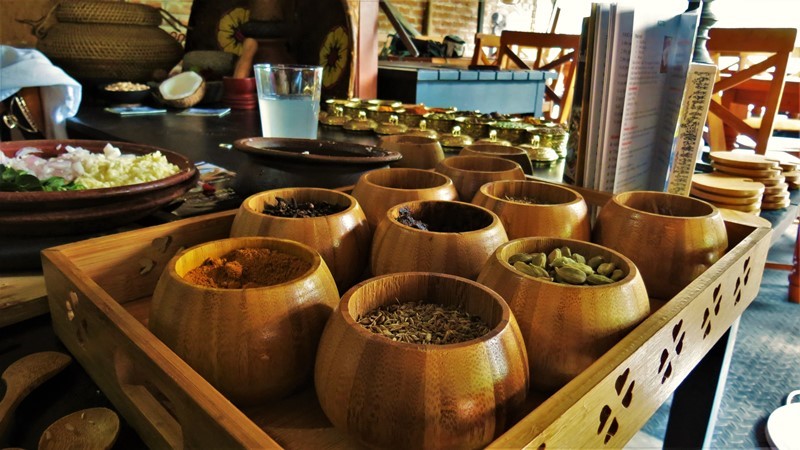
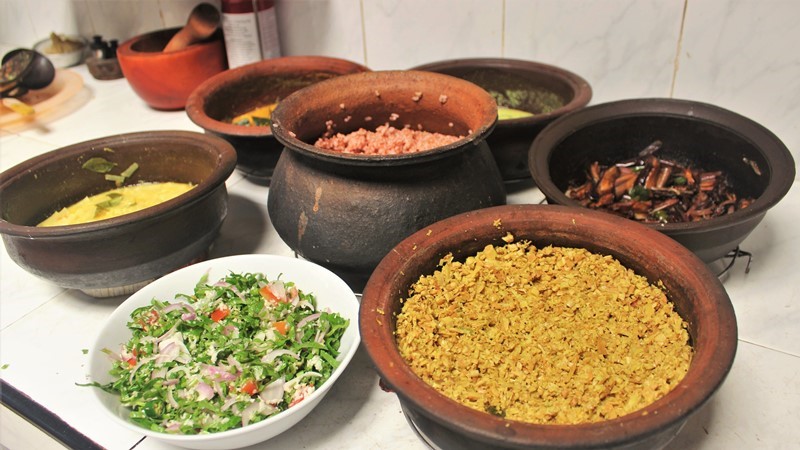
 Eastern Delights with Mala
This experience is only for adventurous travellers who are after raw travel experiences. For those who visit the East coast (mostly during European summer months from April/May to October) and are looking for a real sneak peak into local life, we would suggest a stay at Mala’s homestay for a night – you won’t find anything real than this. But this is only for those who don’t mind roughing it for a night at a very basic house.
On the second day morning, Mala will take you through the local markets to buy vegetable or seafood followed by a proper cooking session with her in the kitchen after which you get to taste a typical eastern lunch.
Eastern Delights with Mala
This experience is only for adventurous travellers who are after raw travel experiences. For those who visit the East coast (mostly during European summer months from April/May to October) and are looking for a real sneak peak into local life, we would suggest a stay at Mala’s homestay for a night – you won’t find anything real than this. But this is only for those who don’t mind roughing it for a night at a very basic house.
On the second day morning, Mala will take you through the local markets to buy vegetable or seafood followed by a proper cooking session with her in the kitchen after which you get to taste a typical eastern lunch.
Photo credit: Katrijn Boone
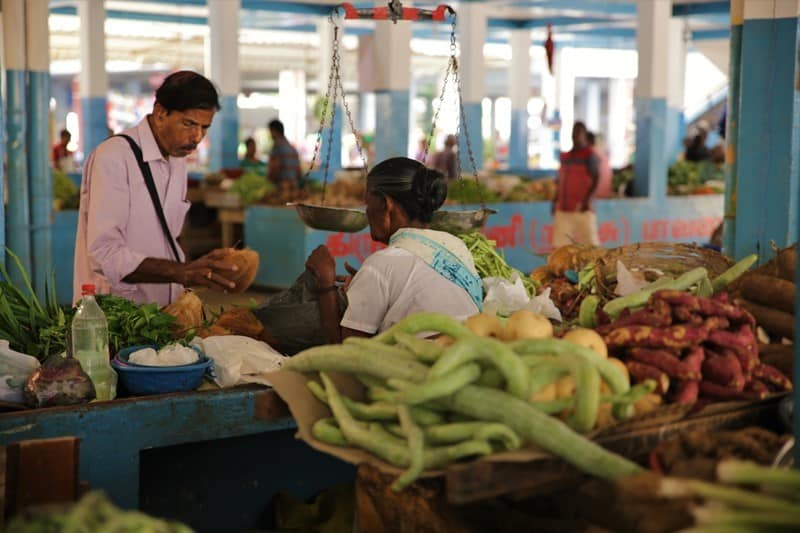
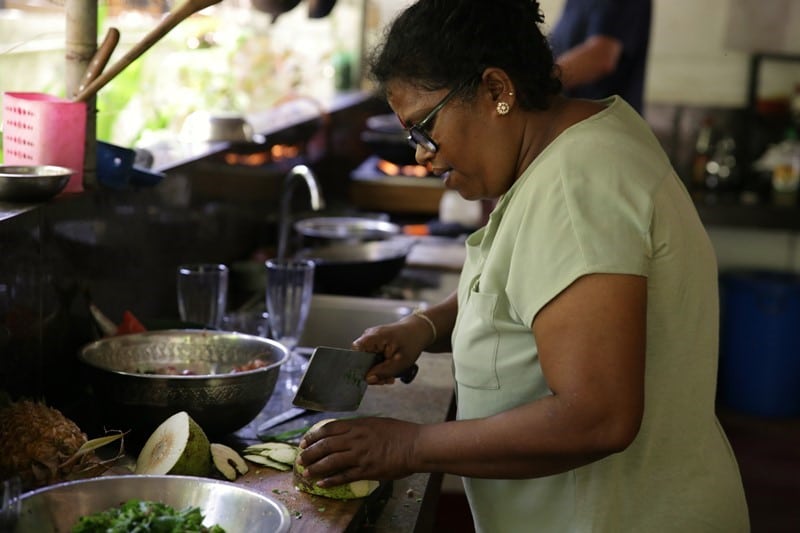
 Supper With a Southern Blend
Here’s a special experience in Galle that often works perfectly as a farewell meal providing a fantastic finale to a trip. Yet again, this takes place in a simple home in Galle where the lady of the house will be waiting with arms open to welcome you. Before feasting on the main meal, you can enjoy a welcome drink over a game of carrom which is quite famous in Sri Lanka.
Then on the menu what will take the spot light naturally would be some southern style seafood and Coconut (whether it’s a coconut milk based curry, a Coconut Sambol or even a Coconut Roti). This is a quintessentially southern experience, a perfect blend of Spices, Hospitality and Care!
Supper With a Southern Blend
Here’s a special experience in Galle that often works perfectly as a farewell meal providing a fantastic finale to a trip. Yet again, this takes place in a simple home in Galle where the lady of the house will be waiting with arms open to welcome you. Before feasting on the main meal, you can enjoy a welcome drink over a game of carrom which is quite famous in Sri Lanka.
Then on the menu what will take the spot light naturally would be some southern style seafood and Coconut (whether it’s a coconut milk based curry, a Coconut Sambol or even a Coconut Roti). This is a quintessentially southern experience, a perfect blend of Spices, Hospitality and Care!
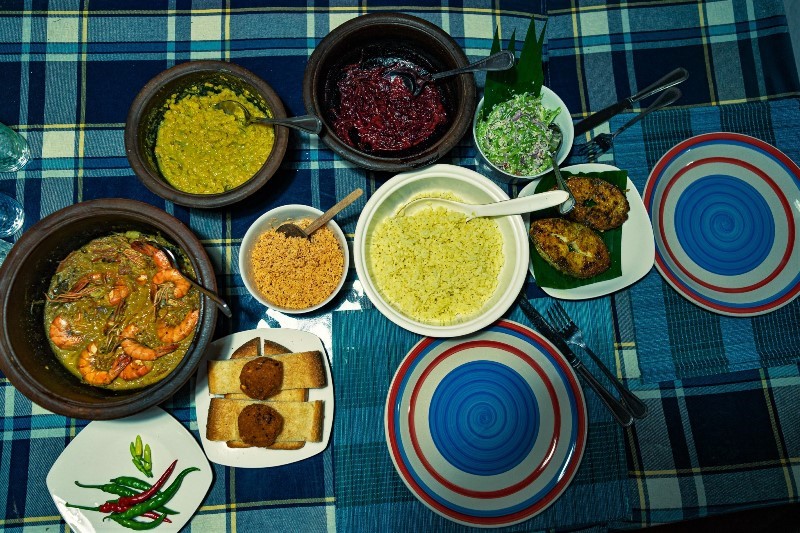
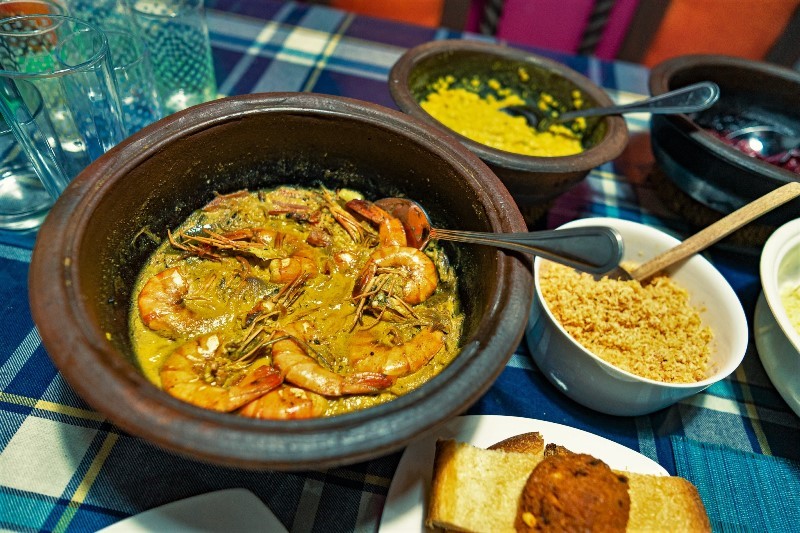
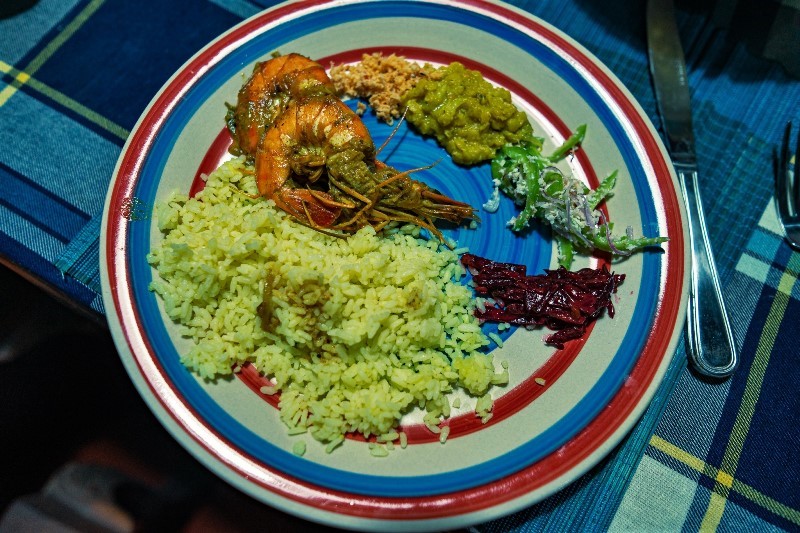
 Mahiru Fernando was born and raised in Colombo, Sri Lanka, and as far back as he can remember, he has always loved being surprised by the things his hometown has to offer. His favourite places on the island are the national parks (though he prefers them without the crowds), and the cooler hiking trails in the countryside that offer fresh air, lush greenery, and views of the waterfalls. When he is not at work, Mahiru can be found with a guitar in his arms, or in a kitchen, where he loves to prepare his favourite dish: Black Pork Curry.
Mahiru Fernando was born and raised in Colombo, Sri Lanka, and as far back as he can remember, he has always loved being surprised by the things his hometown has to offer. His favourite places on the island are the national parks (though he prefers them without the crowds), and the cooler hiking trails in the countryside that offer fresh air, lush greenery, and views of the waterfalls. When he is not at work, Mahiru can be found with a guitar in his arms, or in a kitchen, where he loves to prepare his favourite dish: Black Pork Curry. -
20 Jun 23
Partner News
Khiri Travel Wins Twice at International Travel Awards in DubaiKhiri Travel has won “Best Sustainable Tourism Company - Thailand” and “Best Destination Management ...Read moreKhiri Travel Wins Twice at International Travel Awards in Dubai - News & announcementsKhiri Travel has won “Best Sustainable Tourism Company - Thailand” and “Best Destination Management Company - Thailand” at the 2023 International Travel Awards held in Dubai on 17 June. Award organisers, UAE-based Golden Tree, said: “Khiri Travel has shown itself as a brilliant representative of excellent services in the global tourism industry.” The annual awards are voted by guests, travellers and travel industry players alike. Over a hundred thousand international travellers and tourism industry professionals vote to select the winners across all categories each year. Acknowledging the two awards, Willem Niemeijer, CEO and Founder of Khiri Travel, which is celebrating 30 years of DMC operations this year, said: “Two international travel awards in one evening is testament to over three decades of innovation and commitment to responsible tourism.” He added: “While Thailand is Khiri’s biggest destination, we apply the same commitment to discovery and high quality sustainable travel in all the eight Asian destinations where we operate.” In May, Khiri Travel officially celebrated its 30th anniversary, growing from a start-up in a Bangkok shophouse in 1993, to one of Asia’s leading destination management companies four decades later. Khiri Travel is now operational in Thailand, Cambodia, Laos, Vietnam, Indonesia, Myanmar, Sri Lanka and the Maldives. Earlier this month, Khiri Travel was lauded by readers of Travel+Leisure Southeast Asia as one of the top five tour operators in the region. Khiri Travel’s charitable arm, Khiri Reach, has also been shortlisted in the Travel Marketing Awards which take place in London on 3 July. -
07 Jun 23
Partner News
Khiri Travel and Cardamom Tented Camp Hailed Among the BestTwo YAANA Ventures companies were lauded in the 2023 Travel + Leisure Luxury Awards ...Read moreKhiri Travel and Cardamom Tented Camp Hailed Among the Best - News & announcementsTwo YAANA Ventures companies were lauded in the 2023 Travel + Leisure Luxury Awards for Asia Pacific, which were revealed 5 June. Travel + Leisure Southeast Asia readers recognised YAANA Ventures’ Cardamom Tented Camp ecolodge in Cambodia and Khiri Travel, a pan-Asian destination management company, as among the best in the region. Khiri Travel was acknowledged as a top five specialist travel agent, along with three others and category winners Scott Dunn. In Cambodia’s beach and island upcountry hotel category, YAANA Ventures’ award-winning Cardamom Tented Camp was acclaimed fifth out ten illustrious properties, including high end resorts such as Song Saa Private Island, Six Senses Krabey Island, and category winner, Shinta Mani Wild. YAANA Ventures’ Founder and CEO, Willem Niemeijer, received the awards on stage at a ceremony at the Park Hyatt Bangkok hotel attended by hundreds of travel industry leaders. “Readers of Travel + Leisure Southeast Asia recognise that Cardamom Tented Camp and Khiri Travel punch above their weight in their respective categories,” said Niemeijer during the award event. “In terms of sustainability, value for clients, and quality of the guest experience, Cardamom Tented Camp and Khiri Travel walk among the best in a competitive region.” In May 2023, Khiri Travel celebrated its 30th anniversary, growing from a start-up in a Bangkok shophouse in 1993, to one of Asia’s leading DMCs four decades later. The full list of 2023 Travel + Leisure Luxury Award winners for Asia Pacific in all categories are available here. -
23 Mar 23
Partner News
Spotlight in Sri Lanka – Khiri Insider Special EditionWelcome to a very special edition of Khiri Insider, focusing on the beautiful island ...Read moreSpotlight in Sri Lanka – Khiri Insider Special Edition - News & announcementsWelcome to a very special edition of Khiri Insider, focusing on the beautiful island of Sri Lanka! We often have agents asking us if Sri Lanka is now safe to visit and the answer is a resounding YES! The country is reopen for business following the double-whammy of covid and an economic crisis, and as we found ourselves last month, visitors are very welcome indeed. So this newsletter is dedicated to this fascinating, diverse island, with a focus on some of the truly unique experiences we've developed to help your clients dive deep into one of the world's friendliest countries. Our Sri Lanka team are ready & waiting to create unforgettable trips for your travellers, so read on and then get in touch!5 Reasons You Should Be Selling Sri Lanka
Sri Lanka offers diversity, value, friendliness and much more - here's why the time is now to sell this incredible destination! Top Sri Lanka Food & Drink Experiences
Sri Lanka has a truly unique food & drink culture, and Khiri's unique experiences help you discover the best the local cuisine has to offer
Top Sri Lanka Food & Drink Experiences
Sri Lanka has a truly unique food & drink culture, and Khiri's unique experiences help you discover the best the local cuisine has to offer
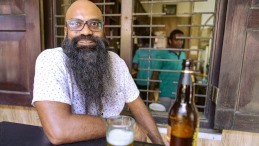 A Walk with Shanjei Perumal
Walking guide, storyteller, TV star, entertainer...Shanjei is a true one-off and his Galle walking tour is an unmissable experience for any visitor to Sri Lanka!
A Walk with Shanjei Perumal
Walking guide, storyteller, TV star, entertainer...Shanjei is a true one-off and his Galle walking tour is an unmissable experience for any visitor to Sri Lanka!
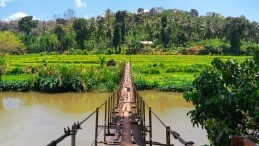 Trails of Matale
For a true deep dive into rural Sri Lankan life - along with an unforgettable curry lunch - check out this new experience in the countryside near Matale
Trails of Matale
For a true deep dive into rural Sri Lankan life - along with an unforgettable curry lunch - check out this new experience in the countryside near Matale
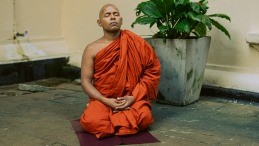 Favourite Buddhist Temples
Explore some of Sri Lanka's most beautiful temples, including the famous Dambulla caves & the Temple of the Tooth, on this spiritual journey around the island
Favourite Buddhist Temples
Explore some of Sri Lanka's most beautiful temples, including the famous Dambulla caves & the Temple of the Tooth, on this spiritual journey around the island
-
26 Jan 23
Partner News
Hip Asia Cities – Khiri Insider January 2023January 2023 - Hip Asia Cities Welcome to the latest issue of the ...Read moreHip Asia Cities – Khiri Insider January 2023 - News & announcementsJanuary 2023 - Hip Asia Cities Welcome to the latest issue of the Khiri Insider newsletter! This month we're looking at some of Asia's hipster hotspots including art/creative hubs, nightlife hangouts, laid-back beaches and more! We also take a journey around Southeast Asia's railway network with rail travel guru Matthew Woodward, and invite you to join us at ITB 2023 in Berlin. We're already seeing a huge increase in bookings for 2023 and we're confident that this year, the 30th of Khiri's existence, is going to be a good one! We've got lots of new experiences in place and plenty more coming up so we look forward to creating memorable Asia journeys for your clients in the months to come.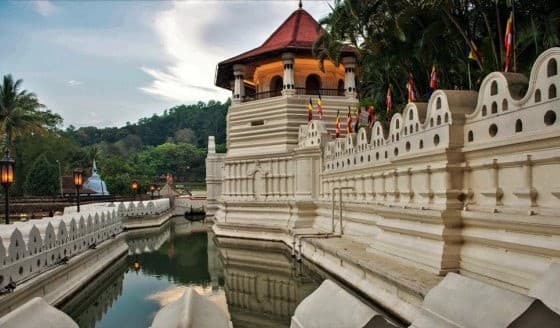
Kandy: City of Kings, Temples & Vintage Bars
The capital of Sri Lanka's Hill Country, Kandy has plenty to fascinate visitors including bustling markets, ancient temples & classic, old-school bars.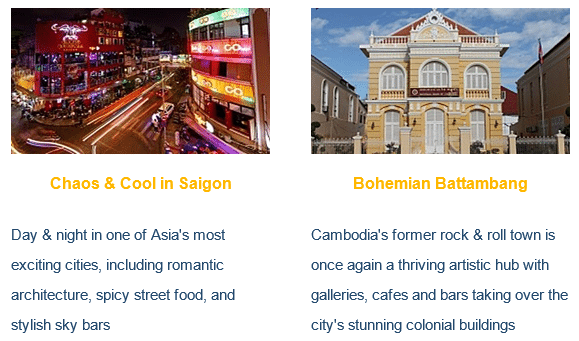
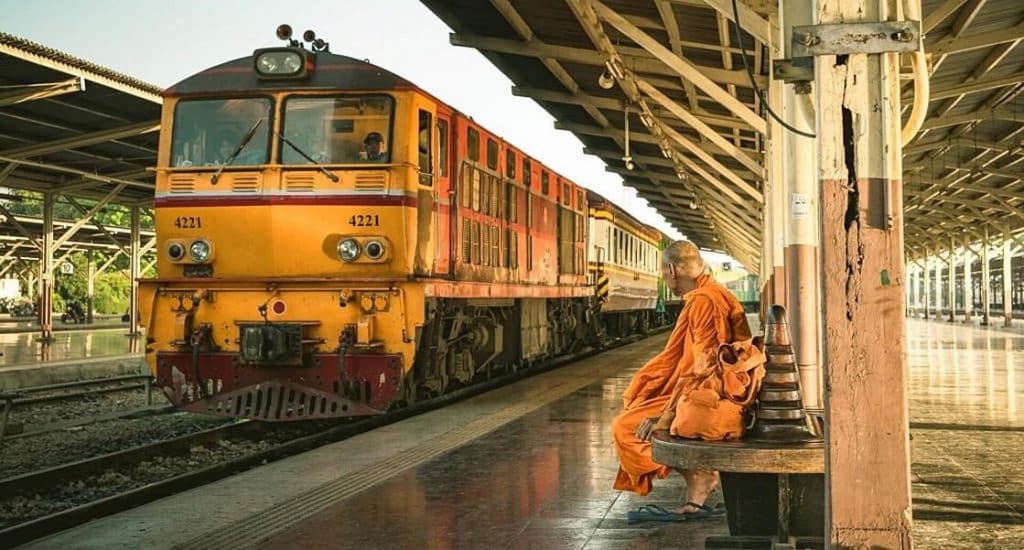
Guest Blog: Riding the Rails in Southeast Asia
Travel writer & rail expert Matthew Woodward tells us why taking the train is the best way to explore Asia, and shares his experiences of rail travel through Thailand, Vietnam, Cambodia & Laos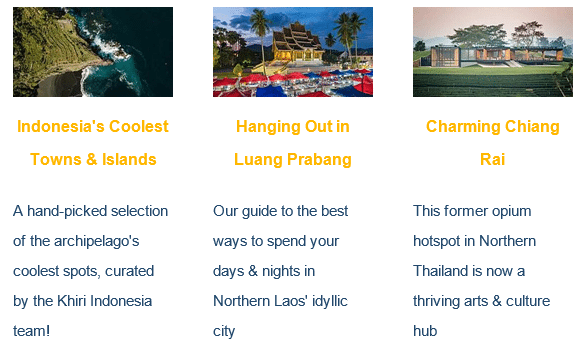

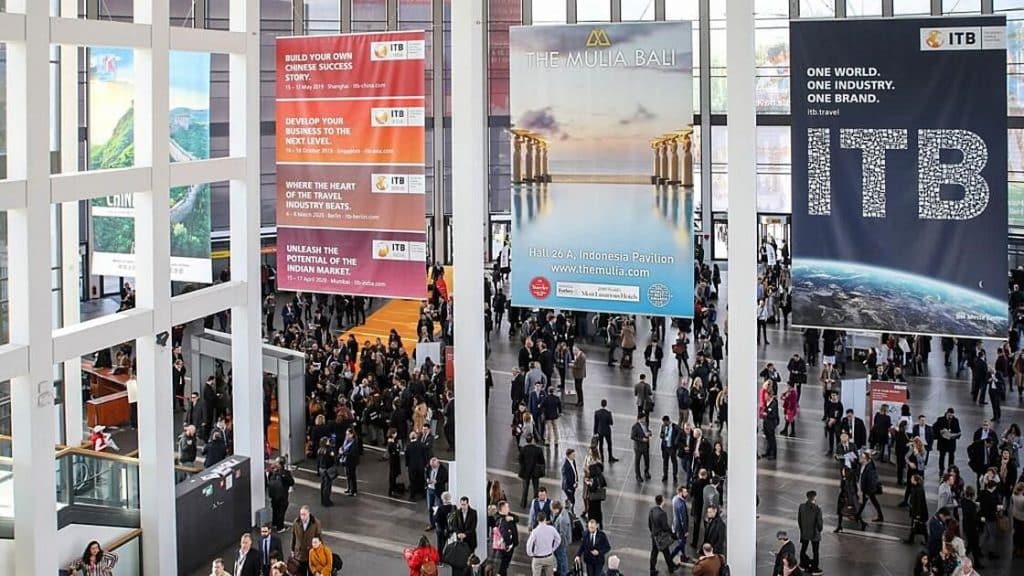
Meet Khiri at ITB 2023!
After a four-year absence, ITB Berlin is BACK this March! Click the image to book an appointment with our team -
29 Nov 22
Partner News
Your 2023 Asia Travel PlannerNovember 2022 - Asia Travel Planning 2023 Welcome to the latest issue of ...Read moreYour 2023 Asia Travel Planner - News & announcementsNovember 2022 - Asia Travel Planning 2023
Welcome to the latest issue of the Khiri Insider newsletter! This month we're helping you plan your customers' 2023 trips with our guides to when and where to visit in all our main destinations! This newsletter is a really useful resource for helping your clients decide where and when they want to go in the months to come. All our destinations are now fully reopen for tourism and our regional teams are ready to provide unique and memorable experiences for your clients, so please read and share our passion for discovery - we believe 2023 will be a HUGE year for travel to Asia so let's make it a success together! With so many amazing beaches & islands, selling Thailand can be a big challenge. Don't worry, we've got your back with this straightforward guide to Thailand beach travel, from Phuket to Turatao!When to Visit Northern Vietnam
 Vietnam's mountainous north offers some of Southeast Asia's most spectacular scenery, as well as friendly people and great food...
Vietnam's mountainous north offers some of Southeast Asia's most spectacular scenery, as well as friendly people and great food...
Slow Travel Through Laos
 With its meandering rivers, winding mountain passes and laid-back towns, Laos is the perfect slow travel destination
With its meandering rivers, winding mountain passes and laid-back towns, Laos is the perfect slow travel destination
The Islands of Cambodia
 Cambodia may not (yet) have a reputation as a beach destination, but its southern islands & beaches are making waves!
Cambodia may not (yet) have a reputation as a beach destination, but its southern islands & beaches are making waves!
When to Visit Southeast Sri Lanka
 Sri Lanka's wild southeast is a paradise for nature lovers, with several national parks to visit. Here's our guide to making the most of it
Sri Lanka's wild southeast is a paradise for nature lovers, with several national parks to visit. Here's our guide to making the most of it
Indonesia - When & Where
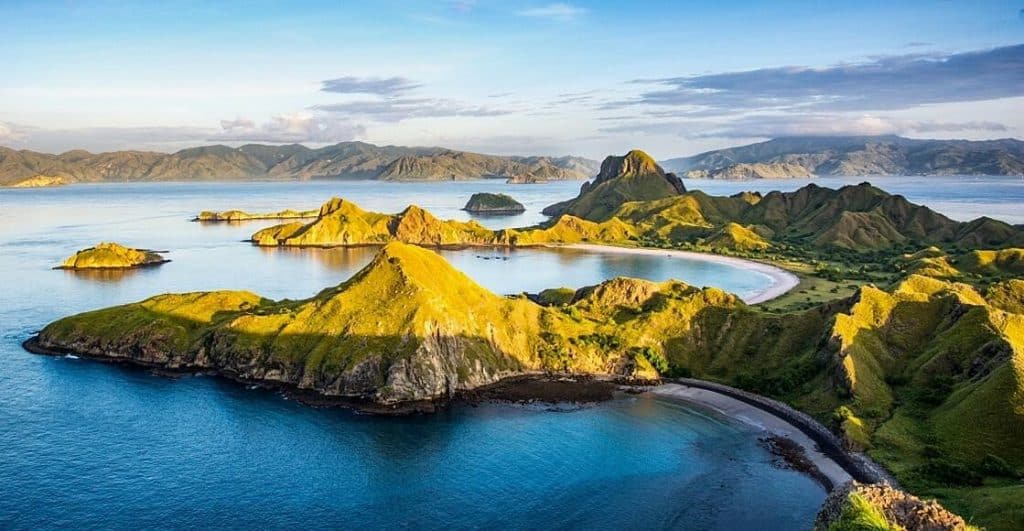 Indonesia's size & diversity means a huge range of islands & destinations with different climates. Confused? Our guide to when & where to visit this incredible country will help you get to grips with how to sell Indonesia trips
Indonesia's size & diversity means a huge range of islands & destinations with different climates. Confused? Our guide to when & where to visit this incredible country will help you get to grips with how to sell Indonesia trips -
19 Aug 22
Partner News
Khiri Insider: Laos Special EditionWelcome to a special one-off edition of Khiri Insider! There's so much going on in ...Read moreKhiri Insider: Laos Special Edition - News & announcementsWelcome to a special one-off edition of Khiri Insider! There's so much going on in the incredible Southeast Asian destination of Laos at the moment that we decided to dedicate a whole newsletter to it. Laos is fully open to vaccinated or COVID-negative travellers and has so much to offer - and the new high-speed railway has made getting around the country much easier than before. Factor in some of the friendliest people in Asia, fascinating culture, stunning landscapes and amazing value for money, and you have arguably the most underrated country in the region. Check out the updates and articles below then contact us to discuss how we can help you help your clients fall in love with Laos!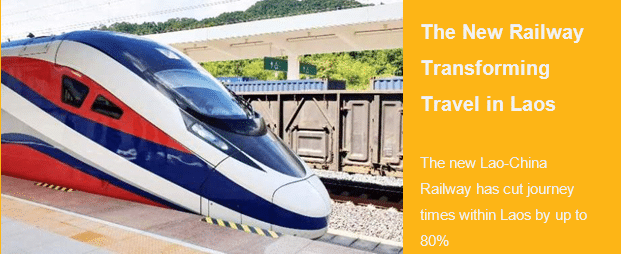
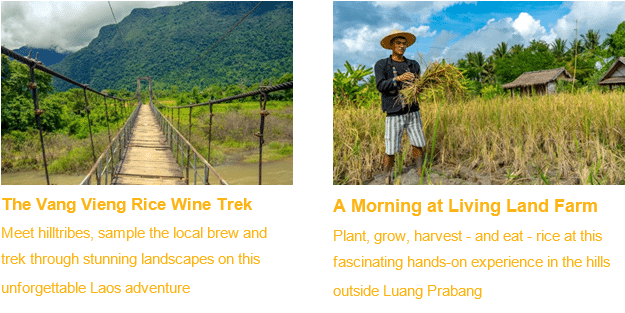
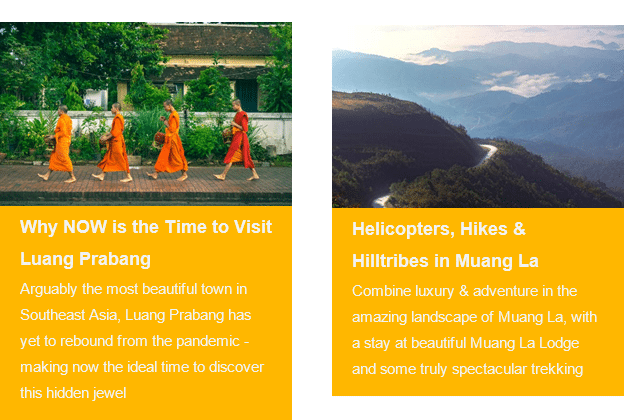
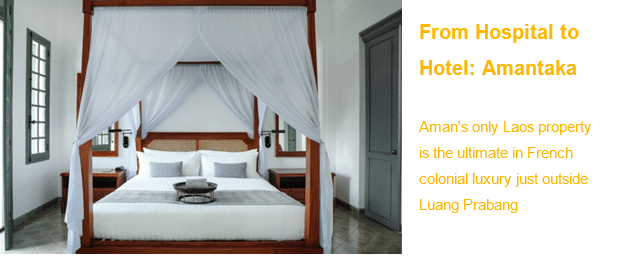
-
29 Jun 22
Partner News
Khiri Insider June 2022: Things That Make You Go “Wow!”Welcome to the June edition of Khiri Insider! This month we're showcasing some of ...Read moreKhiri Insider June 2022: Things That Make You Go “Wow!” - News & announcementsWelcome to the June edition of Khiri Insider! This month we're showcasing some of our newest "Wow!" experiences, as well as presenting the latest episode of our Khiri Pulse podcast and introducing the first of our Khiri Stories long reads. All our destinations are now open to travellers and, apart from Myanmar, have all lifted most of their entry restrictions. With tourist numbers still much lower than 2019, there's never been a better time to visit our region! Thai Tattoos: The Sak Yant Experience
Learn all about this fascinating & sacred art from our experts, & get a tattoo from a Sak Yant master!
Thai Tattoos: The Sak Yant Experience
Learn all about this fascinating & sacred art from our experts, & get a tattoo from a Sak Yant master!
 Private Royal Train Dinner in Cambodia
An incredible luxury dining experience on the king's private rail carriage in Phnom Penh
Private Royal Train Dinner in Cambodia
An incredible luxury dining experience on the king's private rail carriage in Phnom Penh
 The latest episode of our podcast, in which our Marketing Manager, Tim Russell, is joined by chef and broadcaster Kay Plunkett-Hogge
The latest episode of our podcast, in which our Marketing Manager, Tim Russell, is joined by chef and broadcaster Kay Plunkett-Hogge
 Bali by Helicopter
See the Island of the Gods from the perspective of the Gods, on this amazing provate helicopter flight over the island's spectacular northern coast
Bali by Helicopter
See the Island of the Gods from the perspective of the Gods, on this amazing provate helicopter flight over the island's spectacular northern coast
 Sri Lanka Marine Expedition
A luxury private boat cruise with a local marine biologist
Sri Lanka Marine Expedition
A luxury private boat cruise with a local marine biologist
 Helicopters, Hikes & Hilltribes in Laos
An amazing adventure in one of Northern Laos' most remote areas
Helicopters, Hikes & Hilltribes in Laos
An amazing adventure in one of Northern Laos' most remote areas
 Khiri Stories: Hidden Gems of Northern Thailand
In the first of a new series of long reads, we embark on a spectacular journey through the mountains to Nan, Lampang and Pai
Khiri Stories: Hidden Gems of Northern Thailand
In the first of a new series of long reads, we embark on a spectacular journey through the mountains to Nan, Lampang and Pai
-
18 May 22
Expert Hub
Green Season: The Best Time to Visit CambodiaPeople often ask “when is the best time of year to visit Cambodia?”, and ...Read moreGreen Season: The Best Time to Visit Cambodia - News & announcementsPeople often ask “when is the best time of year to visit Cambodia?”, and this is not an easy question to answer. Cambodia has many seasons, but is usually described as either wet and dry – however, this is not always the case. The months between November and March are usually the coolest and driest months to visit Cambodia – during these months the rice paddies are typically empty brown and dusty. The hottest months of the year are between April and June, when you can expect very high temperatures with some rain, which increases slowly as the months pass – usually heavy downpours in the mornings or afternoons which, though short lived, do produce a lot of water. Between July and October, you can expect heavier rain and there are occasions where it will rain throughout the day. The rain creates a whole new season of itself that we like to call the Green Season, which runs from June to September, and it is when Cambodia is at its most visually striking. During these months the rice fields go through the most amazing spectrum of greens, from a vivacious and vivid green to an illuminous iridescent lime green before starting to turn to autumn tones just before harvesting.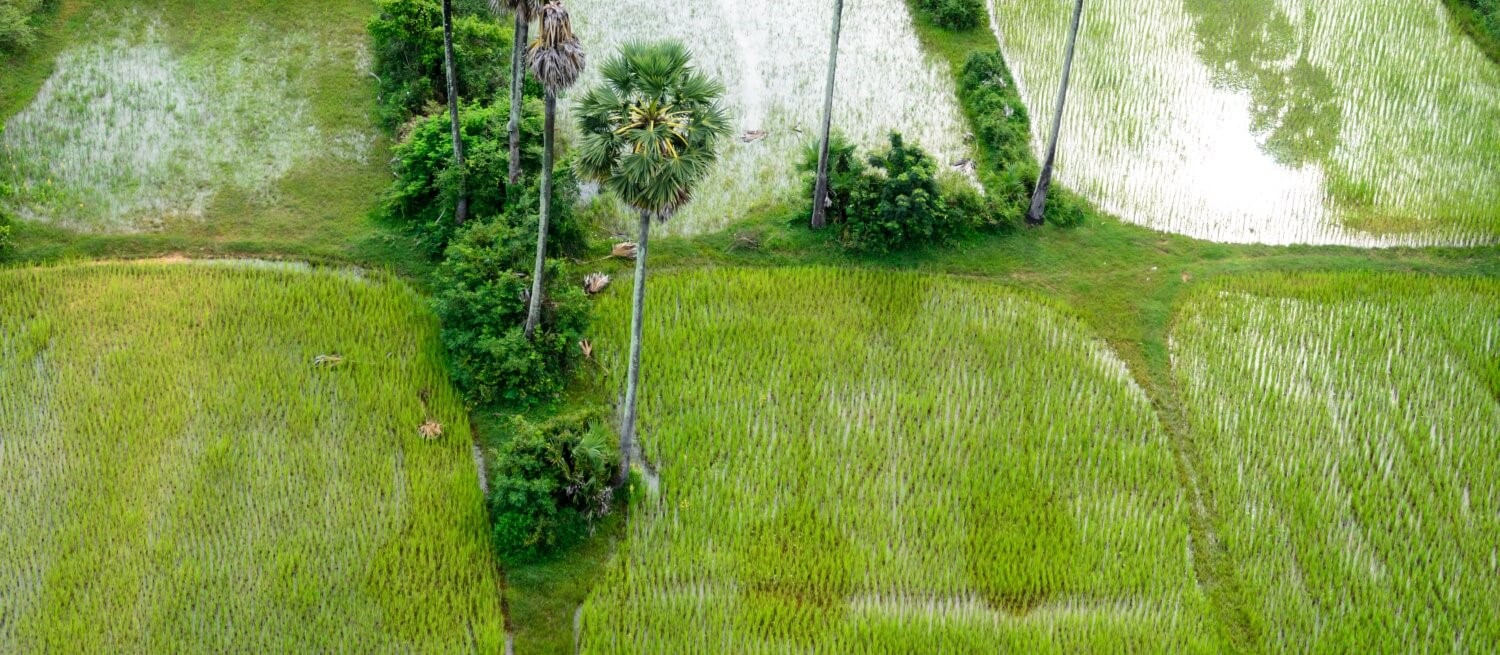 During the green season the tropical flowers are in bloom and in abundance, the two most impressive seasonal tropical flowers being the Peacock flower (Caesalpinia Pulcherrima) a fiery red and orange flower; and the Queens Flower (Lagerstroemia Speciosa) a soft and subtle purple coloured flower. The temples are surrounded by grass and leafy trees and the perennial Champa or Frangipani tree is in full bloom.
Overall it is a much brighter time of year to be traveling through the kingdom. The afternoon rains can bring a welcome refreshing relief to the humid conditions. The Green Season is also usually the quietest month in terms of visitor numbers which makes visiting the Kingdom very pleasant for those wanting to avoid crowds at the major tourist sites and attractions.
Siem Reap - Greener Than Ever
Over the past 15 months a major road project has been undertaken in Siem Reap, appropriately called the 38 Roads Project. The main streets, roads and thoroughfares of Siem Reap have been transformed, roads have been widened and sealed, drainage and sewerage systems built, paths and walkways created, riverside parks and gardens have taken bloom and most exciting of all a network of dedicated and clearly marked cycling paths has emerged.
The other great news about Siem Reap is that it is back open awaiting visitors! More of the best hotels in town have reopened their doors, as have our favourite restaurants and bars: a visit to Siem Reap is not complete without visiting Miss Wong cocktail bar – step back to 1930s Shanghai and enjoy one of the best crafted cocktails that you will ever have. For some true and authentic Khmer food you cannot go past Sugar Palm, serving the flavours of Cambodia in a great setting. A meal at Sugar Palm is not one that you will forget. The time to visit Siem Reap is now.
During the green season the tropical flowers are in bloom and in abundance, the two most impressive seasonal tropical flowers being the Peacock flower (Caesalpinia Pulcherrima) a fiery red and orange flower; and the Queens Flower (Lagerstroemia Speciosa) a soft and subtle purple coloured flower. The temples are surrounded by grass and leafy trees and the perennial Champa or Frangipani tree is in full bloom.
Overall it is a much brighter time of year to be traveling through the kingdom. The afternoon rains can bring a welcome refreshing relief to the humid conditions. The Green Season is also usually the quietest month in terms of visitor numbers which makes visiting the Kingdom very pleasant for those wanting to avoid crowds at the major tourist sites and attractions.
Siem Reap - Greener Than Ever
Over the past 15 months a major road project has been undertaken in Siem Reap, appropriately called the 38 Roads Project. The main streets, roads and thoroughfares of Siem Reap have been transformed, roads have been widened and sealed, drainage and sewerage systems built, paths and walkways created, riverside parks and gardens have taken bloom and most exciting of all a network of dedicated and clearly marked cycling paths has emerged.
The other great news about Siem Reap is that it is back open awaiting visitors! More of the best hotels in town have reopened their doors, as have our favourite restaurants and bars: a visit to Siem Reap is not complete without visiting Miss Wong cocktail bar – step back to 1930s Shanghai and enjoy one of the best crafted cocktails that you will ever have. For some true and authentic Khmer food you cannot go past Sugar Palm, serving the flavours of Cambodia in a great setting. A meal at Sugar Palm is not one that you will forget. The time to visit Siem Reap is now.
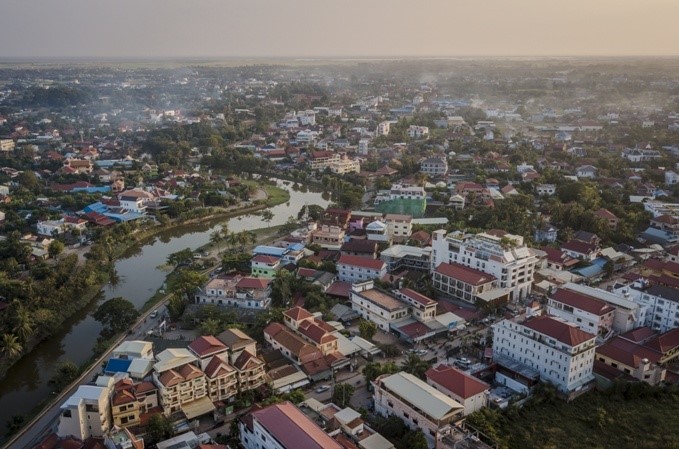
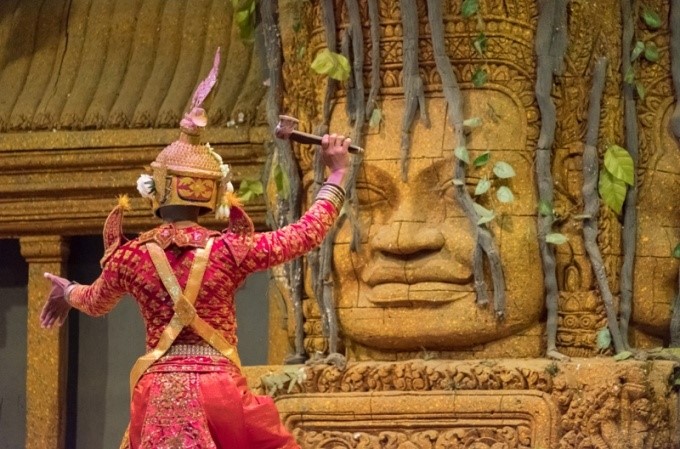
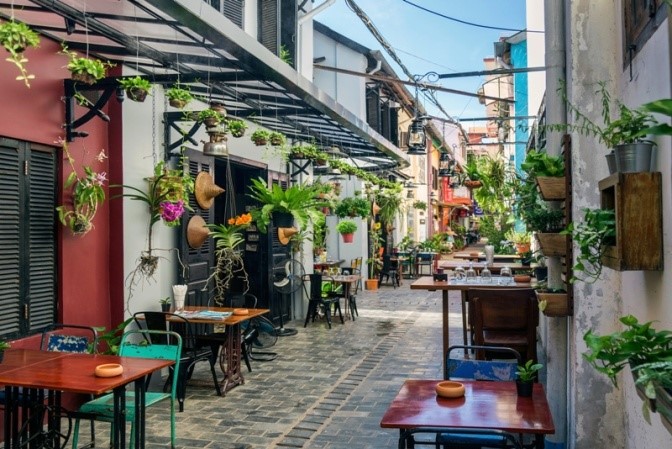 Cambodia - The Time is Now!
There has never been a better year to visit Cambodia and this Green Season will be the last chance to experience the majestic temples of Angkor without the maddening crowds. Angkor Wat is one of the most popular cultural sites in the world that usually sees large visitor numbers but right now you can experience the incredible temples as if you were the only one there! Tourists are returning and we advise you to get in early to have this once in a lifetime experience.
From temples to the exciting, bustling cosmopolitan capital of Phnom Penh, to quaint provincial cities rich in culture and colonial architecture, to tented camps in remote areas that work tirelessly to preserve and protect the wildlife, fauna and flora of Cambodia to turquoise white sand beaches on secluded islands in the Gulf of Siam.
Cambodia has so much to offer and here are a few ways to spend up to 21 days in the Kingdom of Wonder.
You need at least 3 days to experience and discover Siem Reap and the Temples of Angkor. You may wish to include a visit to an outer lying temple like Beng Mealea or the Rolous group. You may wish to simply take a day out and sit by the pool and read that holiday book you have been wanting to read. A visit to the Phare Circus one evening is a must. Add a few days to travel west to Battambang, a charming city set on the banks of the Stung Sanke river. Battambang is surrounded by lush tropical vegetation and has some fascinating mountaintop pagodas to visit.
From Siem Reap you can drive south to Kampong Thom and stay overnight at a unique homestay or at the delightful Sambor Village hotel. On the outskirts of Kampong Thom are the fascinating temples of Sambor Prei Kuk which date back to the 7th century, pre-dating Angkor Wat.
Discover the nation’s bustling capital Phnom Penh. For many a day is not enough but on a full day tour you can take in the most important and significant sites;however we recommend at least 2 days in Phnom Penh. You can spend a day exploring the many markets including the iconic Central Market with its striking modern Khmer architecture. Enjoy a rooftop sunset drink at one of the many rooftop bars as the sun sets on this exciting and rapidly developing city. Add another day to Phnom Penh and take a tour to Oudom, the former capital of Cambodia, or take a bike ride around Kos Dach or Silk Island and get up close to rural life. Both these destinations are a short day trip from Phnom Penh.
Head South to the coastal cities of Kampot and Kep. Kampot has a real bohemian feel and Kep is known for having the best and freshest crab in all of Southeast Asia. From here you can head to the port of Sihanoukville where you can take a ferry or speedboat to one of the islands. The two best islands are Koh Rong and Koh Rong Samloem, which both have pristine beaches with white sands and crystal clear turquoise waters. These islands are not overrun with resorts and are one of southeast Asia’s best kept secret, with accommodation to suit every budget from beach bungalows to high end luxury exclusive resorts. You could easily spend 4 nights lazing on one of the islands, reading books or just taking the time to recharge and rejuvenate your soul.
For those interested in getting off the beaten path and out into the wilderness the Cardamom tented Camp is perfect. Established in conjunction with the highly respected NGO Wildlife Alliance Cambodia, a 3-night stay here will enable you to take treks with local rangers to see firsthand the work they do and the difference they are making in preserving and protecting Cambodia’s extremely vulnerable remaining wildlife.
If you venture in the direction of north eastern Cambodia you can visit Kratie and see the elusive but fascinating freshwater Irrawaddy dolphins, or head to hills of Mondulkiri and Ratanakiri where ethnic minorities still live in their unique housing and practice their traditional way of life. Cambodia is more than just the temples of Angkor, so speak with one of our travel designers today to create the perfect tailor-made itinerary.
Cambodia - The Time is Now!
There has never been a better year to visit Cambodia and this Green Season will be the last chance to experience the majestic temples of Angkor without the maddening crowds. Angkor Wat is one of the most popular cultural sites in the world that usually sees large visitor numbers but right now you can experience the incredible temples as if you were the only one there! Tourists are returning and we advise you to get in early to have this once in a lifetime experience.
From temples to the exciting, bustling cosmopolitan capital of Phnom Penh, to quaint provincial cities rich in culture and colonial architecture, to tented camps in remote areas that work tirelessly to preserve and protect the wildlife, fauna and flora of Cambodia to turquoise white sand beaches on secluded islands in the Gulf of Siam.
Cambodia has so much to offer and here are a few ways to spend up to 21 days in the Kingdom of Wonder.
You need at least 3 days to experience and discover Siem Reap and the Temples of Angkor. You may wish to include a visit to an outer lying temple like Beng Mealea or the Rolous group. You may wish to simply take a day out and sit by the pool and read that holiday book you have been wanting to read. A visit to the Phare Circus one evening is a must. Add a few days to travel west to Battambang, a charming city set on the banks of the Stung Sanke river. Battambang is surrounded by lush tropical vegetation and has some fascinating mountaintop pagodas to visit.
From Siem Reap you can drive south to Kampong Thom and stay overnight at a unique homestay or at the delightful Sambor Village hotel. On the outskirts of Kampong Thom are the fascinating temples of Sambor Prei Kuk which date back to the 7th century, pre-dating Angkor Wat.
Discover the nation’s bustling capital Phnom Penh. For many a day is not enough but on a full day tour you can take in the most important and significant sites;however we recommend at least 2 days in Phnom Penh. You can spend a day exploring the many markets including the iconic Central Market with its striking modern Khmer architecture. Enjoy a rooftop sunset drink at one of the many rooftop bars as the sun sets on this exciting and rapidly developing city. Add another day to Phnom Penh and take a tour to Oudom, the former capital of Cambodia, or take a bike ride around Kos Dach or Silk Island and get up close to rural life. Both these destinations are a short day trip from Phnom Penh.
Head South to the coastal cities of Kampot and Kep. Kampot has a real bohemian feel and Kep is known for having the best and freshest crab in all of Southeast Asia. From here you can head to the port of Sihanoukville where you can take a ferry or speedboat to one of the islands. The two best islands are Koh Rong and Koh Rong Samloem, which both have pristine beaches with white sands and crystal clear turquoise waters. These islands are not overrun with resorts and are one of southeast Asia’s best kept secret, with accommodation to suit every budget from beach bungalows to high end luxury exclusive resorts. You could easily spend 4 nights lazing on one of the islands, reading books or just taking the time to recharge and rejuvenate your soul.
For those interested in getting off the beaten path and out into the wilderness the Cardamom tented Camp is perfect. Established in conjunction with the highly respected NGO Wildlife Alliance Cambodia, a 3-night stay here will enable you to take treks with local rangers to see firsthand the work they do and the difference they are making in preserving and protecting Cambodia’s extremely vulnerable remaining wildlife.
If you venture in the direction of north eastern Cambodia you can visit Kratie and see the elusive but fascinating freshwater Irrawaddy dolphins, or head to hills of Mondulkiri and Ratanakiri where ethnic minorities still live in their unique housing and practice their traditional way of life. Cambodia is more than just the temples of Angkor, so speak with one of our travel designers today to create the perfect tailor-made itinerary.
 United Kingdom
United Kingdom United States
United States Asia Pacific
Asia Pacific











